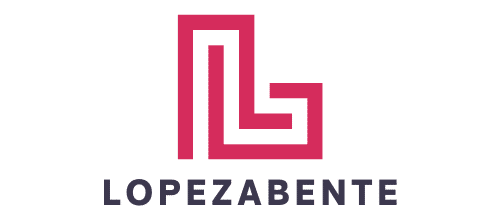What’s the Latest in Adaptive Learning Technology for UK Language Learners?

In the realm of education, digital transformation has been sprinkling its magic, and language learning is not an exception. This transformation is significantly evident in the United Kingdom, where adaptive learning technology has become increasingly influential. The digital shift has reinvented the traditional models of teaching and learning, making education more personalised, interactive, and efficient. This article aims to explore the latest trends in adaptive learning technology that are reshaping language learning for students across the UK.
Adaptive Learning Technology: A New Pedagogical Approach
In essence, adaptive learning is a method that leverages data and technology to adjust to a learner’s individual needs dynamically. It presents a paradigm shift in teaching strategies, enabling the educational process to be tailored to the learning pace, style, and level of each student. This approach is particularly beneficial for language learners, where understanding and mastering a new language require a significant level of personalisation and interactivity.
A lire aussi : How Can Smart Insoles Improve Athletic Performance and Prevent Injuries for UK Runners?
Adaptive learning technology uses sophisticated algorithms to analyse learner data and automatically adjust the content, level of difficulty, and type of teaching method used. The advent of mobile and online education platforms has made adaptive learning more accessible and efficient, offering unprecedented convenience and flexibility to students and teachers alike. The implementation of this technology in UK schools and other educational institutions has opened new horizons for language learning, making it more engaging, effective, and learner-centric.
Big Data and Machine Learning: The Driving Forces Behind Adaptive Learning
Two essential components are making adaptive learning possible: big data and machine learning. Big data refers to the enormous volume of data generated by learners during their learning process, while machine learning is a subset of artificial intelligence (AI) that enables computers to learn and improve from experience without being explicitly programmed.
A voir aussi : How Will Electric Flying Taxis Change the Landscape of UK Urban Mobility?
In the context of adaptive learning, these technologies work together to collect and analyse data on learners’ behaviour, performance, and preferences. This collected data then drives the adaptations made to the learning material, ensuring that it is tailored to the individual needs of each learner. The use of big data and machine learning in adaptive learning technology has transformed language learning in UK schools, making it more personalised, dynamic, and efficient.
Personalised Learning Pathways: The Heart of Adaptive Learning Technology
One of the most significant benefits of adaptive learning technology is its ability to create personalised learning pathways for students. These pathways are tailored to the unique needs, pace, and level of each learner, ensuring that they receive the most suitable and effective learning experience.
In the realm of language learning, personalised learning pathways are particularly beneficial. They enable learners to focus on the aspects of the language they find most challenging, allowing them to learn at their own pace and in their own way. This can include focusing on specific areas such as vocabulary, grammar, pronunciation, or comprehension. By honing in on these areas, learners can achieve mastery at their own pace, which enhances their motivation and confidence.
Mobile and Online Learning: Bringing Adaptive Learning to the Learners
The rise of mobile and online learning platforms has significantly contributed to the accessibility and effectiveness of adaptive learning. These platforms provide learners with the flexibility to learn anytime and anywhere, making education more accessible and convenient.
For language learners in the UK, mobile and online learning platforms offer a host of benefits. They provide instant access to a wide range of resources, such as interactive exercises, multimedia content, and real-world scenarios. The adaptability of these platforms also allows learners to practice and reinforce their language skills in a variety of contexts, enhancing their understanding and fluency.
The Role of Teachers in Adaptive Learning
While adaptive learning technology has revolutionised education, it does not diminish the role of teachers. On the contrary, it enhances it. With the insights gained from learner data, teachers can better understand their students’ strengths, weaknesses, and learning styles, enabling them to provide more effective teaching.
In the context of language learning, teachers can use adaptive learning technology to create personalised learning plans, monitor progress, and provide timely feedback. This not only reduces the administrative burden on teachers but also enables them to focus more on teaching and supporting their students. By embracing adaptive learning technology, teachers can play a more proactive and informed role in their students’ education, fostering a learning environment that is both engaging and effective.
Without a doubt, adaptive learning technology is an exciting development in the field of education. As it continues to evolve, it promises to make learning more personalised, engaging, and effective, particularly for language learners in the UK.
How Google Scholar Facilitates Adaptive Learning
Google Scholar is a valuable source of academic resources and is increasingly being utilised in the realm of adaptive learning. As a vast online library, Google Scholar complements adaptive learning technology by providing a wide array of academic resources that can be tailored to the individual needs of learners.
One aspect where Google Scholar supports adaptive learning is through access to a plethora of articles and publications related to language learning. These resources offer insights and research findings on different aspects of language learning, from teaching practices to learning strategies. In the hands of educators and students alike, these can enhance the adaptive learning process.
For example, a teacher might utilise Google Scholar to find research on effective teaching strategies for English language learners. Based on the insights gained, they can then adjust their teaching methods to better cater to their students’ needs. Similarly, a learner might use Google Scholar to find articles on strategies for improving their grasp of grammar or vocabulary. These resources can then be incorporated into their personalised learning pathway, providing additional support and enrichment.
Through Google Scholar, adaptive learning technology can be supplemented with a wealth of academic resources. This allows for a more comprehensive and research-informed approach to language learning, enhancing the learning outcomes for students across the UK.
The Future of Language Learning: AI, Machine Learning, and Digital Literacies
Looking to the future, the evolution of artificial intelligence and machine learning in conjunction with the development of digital literacies, lays the groundwork for even more innovative approaches to language teaching and learning.
As artificial intelligence and machine learning continue to evolve, they will undoubtedly play an increasingly pivotal role in adaptive learning technology. These technologies will become more sophisticated, capable of analysing learner data with even greater precision and generating more personalised and effective learning experiences.
On the other hand, the development of digital literacies – the skills required to effectively use digital technology – is equally critical. As education continues to embrace digital transformation, learners will need to develop these skills to navigate and make the most out of the digital learning platforms.
In the context of language learning, digital literacies can enhance learners’ ability to utilise online resources, participate in online language communities, and make effective use of digital tools for language practice. This not only enhances their learning experience but also equips them with skills that are increasingly valuable in the digital age.
Conclusion
Adaptive learning technology is revolutionising language learning in the UK, offering an innovative and personalised approach to education. The use of big data, machine learning, and artificial intelligence in conjunction with digital literacies and resources such as Google Scholar is transforming the learning landscape, making language learning a more engaging, effective, and learner-centric experience.
As we move forward, these technologies will only become more sophisticated and integral to education. Teachers will continue to play a crucial role, using the insights gained from these technologies to better cater to their students’ needs and foster effective learning environments.
From the chilly days of January and February to the warm days of August and July, and again through the cooler months of October and November, adaptive learning is a constant companion of language learners in the UK. It is a testament to the power and potential of digital transformation in education, promising a future where learning is as diverse and unique as the learners themselves.
